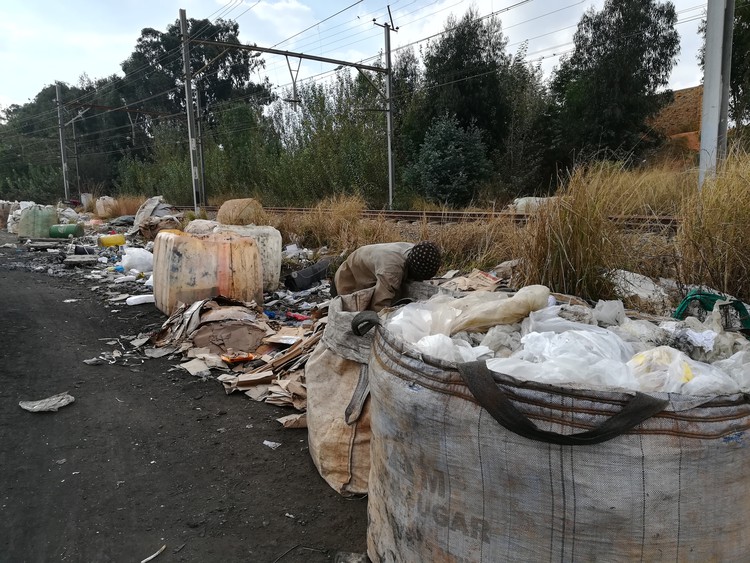“Our entire livelihoods are coming to a standstill” says waste picker
Informal sector workers’ plea to be included in UIF provisions during the lockdown

“We are trying to get the City [of Johannesburg] to classify reclaimers as essential services during this lockdown because of the amount of waste that we move from landfills and the streets,” says Luyanda Hlatshwayo, a waste picker from the African Reclaimers Organisation (ARO).
Waste pickers, also known as reclaimers, are people who sort through waste to find and sell recyclable materials.
A report by the Council for Scientific and Industrial Research (CSRI) said reclaimers are estimated to collect between 80 to 90 percent of discarded packaging and paper in the country. It is estimated that this saves municipalities hundreds of millions of rands in landfill space.
But during the lockdown period which starts today, reclaimers will not be allowed to work.
Hlatshwayo said being made an essential service may put the reclaimers at risk of contracting the coronavirus which is why the government should provide reclaimers with the necessary protective gear, like masks and gloves, to continue their work during the lockdown.
He said ARO had been asking the City to provide reclaimers with protective gear for the past four years.
“This lockdown means that our entire livelihoods are coming to a standstill … On our side, it’s going to be very bad. We were never prepared for this,” said Hlatshwayo.
ARO and nine other organisations representing informal workers in South Africa have called on the government to urgently redirect funds from the Unemployment Insurance Fund (UIF), big events that have been cancelled and other sources, to establish a living cash grant for informal workers regardless of their nationality.
“We provide affordable goods and services to communities, some of which, like the collection of recyclables, create huge savings for municipalities. But none of the statements from the Employment and Labour Department addressed the fallout we are experiencing which we know will get much worse,” read the organisations’ statement released on 20 March.
Minister for Small Business Development Khumbudzo Ntshavheni said that “a national debt relief facility” would be made available for small, medium and micro enterprises (SMMEs). There are also special provisions in the Unemployment Insurance Fund for employers that contribute to the fund monthly.
When it comes to the informal sector, where most employers do not contribute to UIF and some workers are self-employed, things are unclear.
According to Stats South Africa’s 4th quarter 2019 Quarterly Labour Force Survey, around three million people work in South Africa’s informal sector. This includes domestic workers, street vendors as well as reclaimers.
A coalition of unions, workers and organisations wrote an open letter to President Cyril Ramaphosa on 21 March calling on him to extend the UIF provisions to informal workers who have not contributed to the fund. These include unregistered domestic workers and workers who do not get paid if they don’t work.
“If this is not possible we call on the President to set aside an emergency fund specifically for precarious workers,” read the letter.
On Monday, President Cyril Ramaphosa said that “a safety net is being developed to support persons in the informal sector, where most businesses will suffer as a result of this shutdown”. He said more details would follow in the weeks to come.
Support independent journalism
Donate using Payfast

Don't miss out on the latest news
We respect your privacy, and promise we won't spam you.
Next: Covid-19: Some sex workers move online as SA heads into lockdown
Previous: Illegal dumping site stinks in Mfuleni
© 2020 GroundUp.
This article is licensed under a Creative Commons Attribution-NoDerivatives 4.0 International License.
You may republish this article, so long as you credit the authors and GroundUp, and do not change the text. Please include a link back to the original article.
